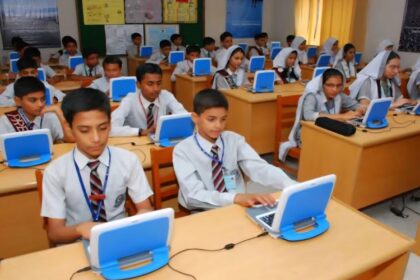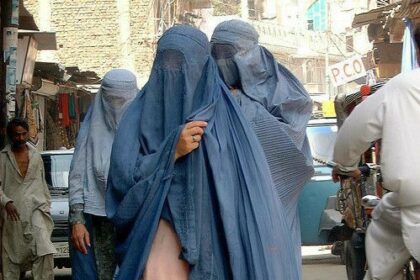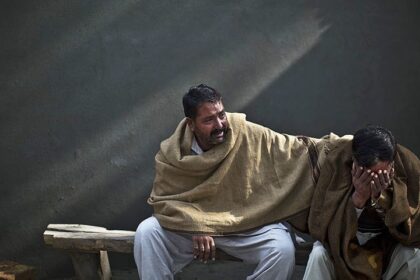The fundamentals of an informal court system serve as the foundation for a dispute resolution system. Contrary to the Pakistani judicial system, which is predominantly male-dominated, with decisions often influenced by male perspectives, a women-led tribunal is depicted in KPK that demonstrates diversity and inclusion in how women make decisions. Additionally, these tribunals have existed since before the arrival of the British, providing the British with the advantage to exercise authority more effectively. After the British left, these methods grew increasingly reliant on local customs.
Jirgas and Panchayats in Pakistan
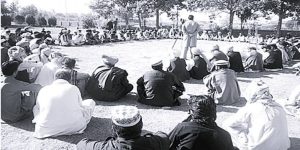
Jirgas are informal gatherings of elders or influential figures that convene in rural regions to settle disputes. They are frequently employed in Pakistan’s tribal areas and often base their decisions on regional customs and traditions. On the other hand, panchayats were more prevalent in Pakistan’s non-tribal areas. Respected community members make up these local councils, which mediate and settle issues by consensus and established customs. They are mainly patriarchal, and all decisions are made based on what men believe to be proper, yet the circumstances for women are rarely favorable.
Legal conflict resolution, in contrast, abides by set legal precedents and guidelines. It often involves bringing a legal claim, following due process, and presenting arguments and supporting evidence before a judge or jury. Legal processes are formal and regimented. In conventional systems, different choices may or may not be enforceable. To ensure resolutions are followed, they frequently rely on social and moral constraints within the community.
Issues with the Jirga System
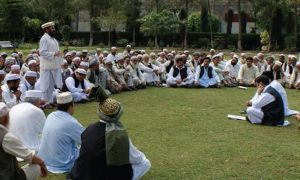
In Pakistan, the Jirga system is unofficial, with rules and processes shaped by various traditions and customs. While discussing incidents in Pakistan, there have been several occasions where the Jirga method resulted in unfair and absurd outcomes. One such instance involved two lovers who were electrocuted to death for bringing shame to society. Additionally, in 2015, a jirga in Diamir determined that women could not vote in elections, disenfranchising almost 12,000 people in the constituency. Due to these appalling outcomes, courts frequently dismiss the rulings of such systems.
A key aspect of Jirga traditions is the honor of males. In these traditions, a woman may be found guilty of adultery based solely on the testimony of one male relative. According to Jirga traditions, a woman who marries voluntarily faces the death penalty for betraying the honor of her male kin. In some practices, such as “swara” or “sung chatti,” women are traded as a form of settlement. These practices often involve a girl who does not participate in a wedding ceremony but instead sits on a donkey before being handed over to the other family as a form of humiliation. The poor are most impacted by these choices, as it is rare for a wealthy family to donate their daughter as restitution.
The Case of Kainat Soomro
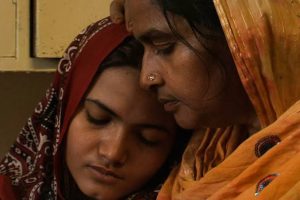
An example of the injustice within the Jirga system is the case of Kainat Soomro. In 2007, while returning home from school, Kainat alleged that she was drugged, kidnapped, and gang-raped by four men, including a father and son. Three days later, she was freed, but a local tribunal branded her as “Kari,” implying that she had lost her virginity before marriage, and the police treated her family harshly. Kainat could have become the victim of karo kari, often known as an honor killing.
Against all odds, Kainat brought her accused assailants to court, but the judge dismissed their claims, declaring them innocent due to lack of supporting documentation. Kainat collaborated with the WAR (War Against Rape) organization to pursue justice. She was forced to marry one of the accused rapists while being held captive to escape being put to death for rape. Even though she was only thirteen, the marriage was recognized under Islamic law.
A month after the court favored her, her brother was reportedly murdered, and the Soomro family became the target of assaults and threats. Appeals against the court’s ruling are still pending. Kainat’s case highlights the challenges victims of sexual assault face in Pakistan in obtaining justice.
The Need for Reform
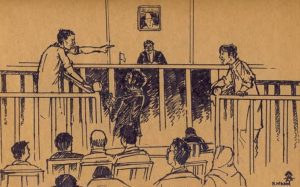
Kainat’s case is a stark example of how informal dispute systems can result in absurd and unjust punishments. These practices cannot be applied in daily life as most cultures progress, and women were historically treated as objects. The perceptions of women must change, as should these traditional methods. Although following a legal court system can be harsh and tedious, it remains a better approach, as there is a proper system to analyze cases. To combat rape cases, Pakistan has implemented legislative reforms, including changes to the criminal code that strengthen the punishments for sexual assaults.
Even during the Mughal era, there was access to justice due to the division of powers represented by Qazis and Muftis. Here, both the Jirgas and the legal court system share the same authority, and individuals can choose between the two systems to obtain greater justice.







